Road Racing Series - Part 2
One month before I was scheduled to ride my first race, a stock street bike still sitting in my garage, I was at Virginia International Raceway covering the festivities of the AMA race weekend. I watched the likes of Spies, Mladin and DiSalvo lap the rural tree-lined track (the same asphalt where I would make my debut) at triple-digit speeds. Between hunting down time sheets, sitting in on press conferences and scheduling interviews, I was looking to glean any knowledge that would help me through the sprint that would be the next five weeks of race prep.
If you discuss American motorcycle road racing in the last decade and the topic of privateers (racers without factory support) comes up, then invariably the conversation will turn to a racer named Geoff May. Now an AMA pro, May is a self-made legend in road racing circles for his often one-man assaults on the podium. He fought his way up from an under-financed amateur to earn a ride on the Jordan Suzuki support squad. If anyone could pass on a few pointers on how to start road racing from scratch, May I reasoned, would be it.
Sitting under the awning of the trailer emblazoned with the famous dunking silhouette logo, the soft-spoken Georgian kicked back after a long day of practicing and qualifying to tell me the story of his racing career. It all started, he explained, when he got his first motorcycle in 1998, a Honda Hawk GT. He quickly found that the mountain roads of North Western Georgia were the best places to ride it. In a progression that comes naturally to every sport bike rider, he started attending road races.
"It was at Road Atlanta that I watched the racers and thought, 'I can do that,'" said May. "Soon after I attended the Freddie Spencer School and I was hooked." Not content to make racing a weekend hobby, May jumped in with both feet. He sold everything he owned to scrape together enough money to buy an ex-school bike from Spencer, a van and a spare set of wheels. He then got a job at a motorcycle dealership to fund his new addiction, which had the added benefit of giving him a parts supply at dealer costs.
In 1999 May started racing as a Championship Cup Series (CCS) novice. In his first year he placed third in his class and earned an expert rating. But the success didn't come easy.
"My first year I learned about crashing," May remembered.
In 2000 it was on to the WERA series, with a Ducati shop supplying a motorcycle, tires and even a mechanic. A season that looked promising ended in disappointment when a bad crash sent May to the hospital. Lying in a hospital bed marked a turning point in his career. "The crash made me re-evaluate everything," he remembered. "I had a premonition in the haze of morphine. I had a vision of trying out for a major team."
But the prospects of racing for a major team were slim. While recovering, May's sponsoring shop went out of business costing him his machine and mechanic turning him back into a one man show. Determined to continue, May bought his own bike and moved to Florida, sleeping on a friend's floor for three months while he tried to get his feet back on the ground.
As the 2001 season opened May was back, this time on the then new GSXR 1000. With the move to the 1000cc four-cylinder, "something clicked," recalls May. Following a sweeping series of victories, he won the WERA national championship catching the eye of John Ulrich and garnering the sponsorship of Roadracing World.
In 2003 May raced to five top-ten finishes in the AMA Superbike series, earning the AMA Superbike Rookie of the Year title in the process, all while riding a Superstock-spec bike. In 2004, using his mechanic's Jeep to tow his bike behind on a trailer, May was fifth in the Superbike series. As he beat many factory teams and gave the best performance ever by a true privateer, the future looked bright - but success still wasn't coming easily.
Over the years May has dealt with setbacks, crashes, injuries and illnesses as well as teams and sponsorships that came and went. He split his time between the AMA circuit and local club races, entering every event he could. Making a living off contingency money and hitting up bigger teams when he needed spare parts, sometimes he would have to borrow a bike to finish a race weekend after his own machines were struck with mechanical problems. "It was out of necessity that I did well," he stated simply.
In 2008, after spending three seasons with M4 Emgo Suzuki, May joined Michael Jordan's Suzuki support squad, teaming with veteran racer Aaron Yates and getting one step closer to factory equipment. "Now people call me a privateer, but I'm not," May was quick to point out. "We're a factory support team and I get paid a salary. The guys who are out there with a camper working on their motorcycles in the parking lot, they're the privateers and I have a lot of respect for them. Motorcycle racing is the hardest thing you can try and do on your own."
After a decade of racing, May can pass on plenty of lessons from the school of hard knocks. Becoming a good racer takes experience. May explained that, "Learning to race is all about seat time, go to a race school. Get back to the basics.” He then added that "Endurance racing is a good place to learn," before finally surmising, "You get lots of seat time and you learn to pass slower riders and to latch on to the faster riders."
I asked May how a budding racer should prioritize spending money when building a bike.
"The bikes come so good from the manufacturers that you can keep things simple. You don't need to worry about the motor. Spend your money on tires and suspension," he said. "Suspension is cheap insurance, because crashing is not only expensive and physically damaging, it takes a toll on you psychologically."
When it comes to building a bike he recommended making friends with the local go-fast guy and learning everything you can. As May knows, a racer cannot make it on their own and the friendships you build in the paddock can go a long way.
"A lot of racing is about who you know," May said."It's easier to find parts and support than it is to find money. Keep a good record of your performances so that you have something to show when you go looking for sponsorship."
In the weeks that followed my conversation with May, he wrapped up a successful season, finishing second in the final AMA Superstock season, tallying five podiums, including two wins (his first AMA nationals). Will 2009 be another step up the AMA ladder? Despite the turmoil in the world of AMA racing, Jordan Motorsports has partnered with Suzuki and will field two teams next year. May has signed on to ride with the new second team on an Army National Guard sponsored bike.
But in the world of road racing nothing is certain and no one knows that better than Geoff May. He wasn't born into road racing royalty or raised on an insider's silver spoon. A self-made success story he's still paying his dues and overcoming the odds. The future is one race, one lap, one corner at a time. Such is the life of a road racer.
"I'm passionate about being on a motorcycle," he said. "I've invested so much in my racing career and I've gambled everything. I don't know how to do anything else."
For a person who's never raced it seems like a big deal going from being a street rider to racing on a track, but according to May it's not. "You just have to put yourself out there and do it."
That shall be my new mantra for the next 30 days as well, "Just put yourself out there and do it." Wish me luck!
Related Reading
Road Racing Series - Part 1
Road Racing Series - Part 3
Road Racing Series - Part 4
Road Racing Series - Part 5
Road Racing Series - Part 6
Road Racing Series - Part 7
Road Racing Series - Part 8
Road Racing Series - Part 9
Road Racing Series - Part 10
Road Racing Series - Part 11
More by Jeremiah Knupp



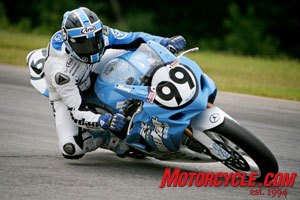







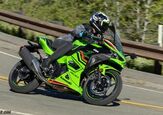
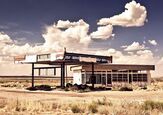
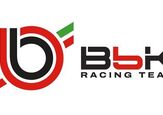
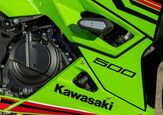
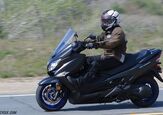
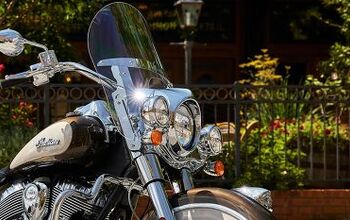

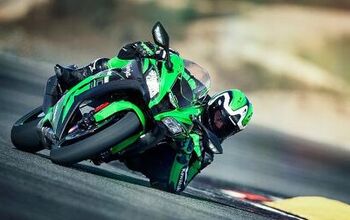
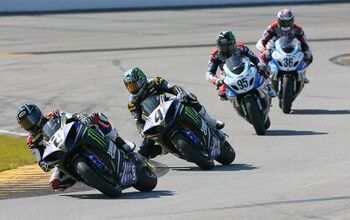
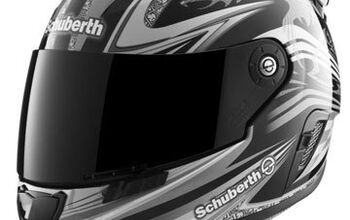
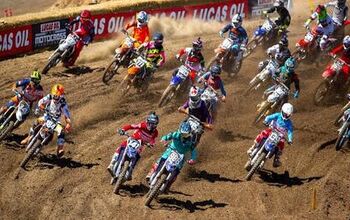
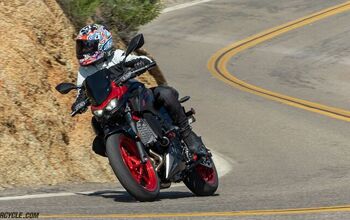
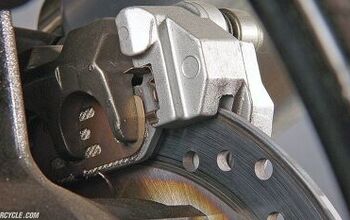


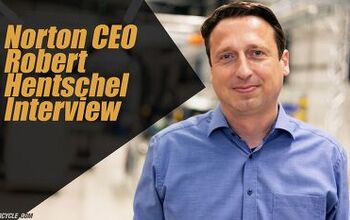
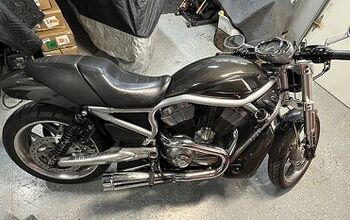
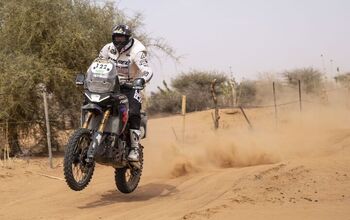
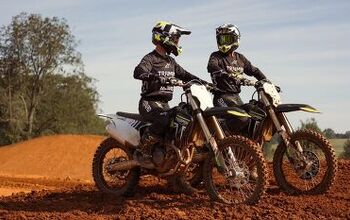
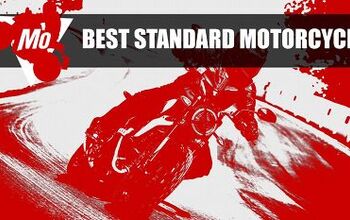
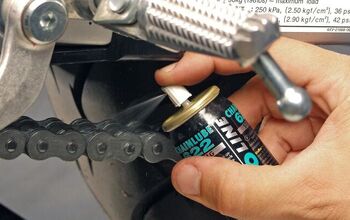
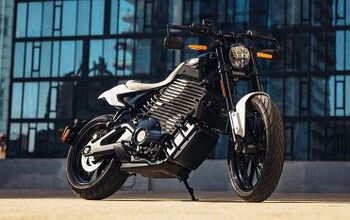

Comments
Join the conversation